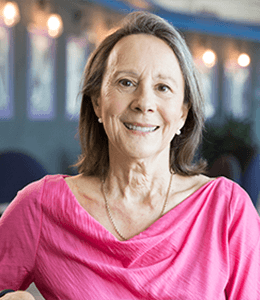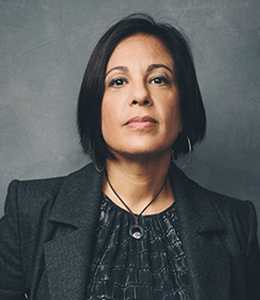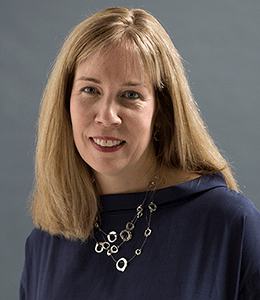Featured
Investment leaders share market advice for newcomers
A giant IPO wave is coming and first-time investors are eager to dive in. Influential leaders, who collectively invested millions in hundreds of start-ups, share their tips for success.

With Uber and Pinterest (NYSE:PINS) among the latest giants to go public this year, eager new investors are lining up for their piece of the pie. The opportunity to invest early in a private company was once a rare occurrence for rookie investors—usually only available after companies had exhausted other funding avenues and had to go public to raise more money.
Now they’ll be going head-to-head for market returns with major banks and venture capital firms such as Morgan Stanley and First Round Capital.
We spoke to seven influential leaders, who collectively invested millions in hundreds of start-ups, for their tips on how to make informed decisions as a first-time investor.
Only invest money that you can afford to lose

Esther Dyson, an angel investor named one of the most powerful women in American business by FORTUNE, urged first-timers to limit their financial investments to an amount they can afford to lose.
Even better, there are many other ways for first-time investors to improve their odds of a decent market return. This could involve offering companies more than just money — for example, professional expertise, advice or connections. “If you don’t have anything relevant to offer other than money, you can’t really improve the company’s chances of success,” said Dyson.
Expect your risks and rewards to be both high and low

Joanne Wilson, an angel investor and the CEO of Gotham Gal Ventures, said the risks and rewards of investing early in a private company can be both high and low.
“The chances of success are slim and there is a very long road ahead,” Wilson said. “You are putting capital into a company that more than likely has not flushed out the idea, has yet to raise a sizable team, has many capital raises in front of them and is working on pulling out of the gate for the next few years.”
Having a business background is not essential
Wilson suggests first-time investors choose areas they are already familiar with. Understanding the nature of the business itself is more important than having a business background, she said.
“If you have been in consumer products all your life, then you fundamentally understand the business and can provide value and insight to that investment,” she said. “If you have no idea about bio-tech, then you should not be making investments in something you don’t get. There is a reason why the best VC firms have a thesis. They become experts in verticals that make them better investors in that space over time.”
Find jargon-free educational materials

Entrepreneur Jill Earthy, who is the head of an educational investor accelerator program, Female Funders, suggests finding educational materials that are not jargon-laden. Most people learn through stories, examples and tools to add context, she said; in fact, the Female Funders program was designed with this in mind.
“It is amazing how something that may appear complicated can be simplified when applied to real-life examples and scenarios,” Earthy said. “By providing additional context and examples, first-time investors can see how their new-found knowledge can be applied to real world scenarios. Although each situation may be different, having a solid framework and knowledge of which questions to ask is helpful to cut through the jargon.”
Look for early stage investment opportunities and mentors
Earthy also believes that first-time investors should invest alongside experienced investors — but they may not have access to all opportunities without a connection to more experienced ones and mentorship.
“First-time investors should be investing alongside experienced investors, as a way to mitigate risk and further the learning process. Having access to exclusive, early stage investment opportunities provides participants with the chance to review many different types of investments to determine what resonates with them, and to then participate with others who share that interest and experience,” she said.
Attend events to network and find opportunities

These opportunities could be found through other founders, investors and advisors in the start-up ecosystem, said Janet Bannister, a venture capitalist who founded Kijiji.ca — one of the world’s most successful internet brands.
Attend events to network and find opportunities
Bannister makes a point of staying involved in the Canadian start-up community as a speaker, advisor and board member for organizations dedicated to helping other entrepreneurs. “As a result, I meet many companies through those activities,” she said, adding that initiatives such as Female Funders and the National Angel Capital Organization (NACO) frequently host events for educational and networking purposes.
One key reason for angel investors to invest in early-stage companies is because they like and believe in the founders and want to help them succeed, she added. “I personally find it extremely rewarding to work with entrepreneurs and help them achieve their full potential.”
Consider the life-changing impact of return on investment

Komal Minhas, an angel investor and entrepreneur named one of the world’s biggest trailblazers by Oprah, said an initial investment of “a few hundred thousand dollars” turned into a “high seven-figure” return that changed her life when diagnosed with cancer.
“That investment allowed me to take off seven months, so that I could recover from my illness,” Minhas said. “And then come back into my career and begin reinvesting in other female companies.”
Invest to pay it forward
Minhas added the upside of that investment was her ability to pay it forward.
“If you invest and make more money, you’re going to help a ton of humans,” she said. “We need more wealthy people who are clear on their progressive values and are paying it forward based on what they care about most in the world. Every investment I make is either going to make me more money, so I can invest in women and girls, or a direct investment in women and girls — specifically in Canada and India.”
Remember the one in 10 odds of success

Erin Engelhardt, a partner at Ovodenovo who gets patent protection for companies during their earliest stages of invention, innovation, and development, said the general success rate that is quoted often is one in 10.
“So you can expect that only one in 10 of your investments is going to reach profitability,” Engelhardt said. “And that means, in any investment, you’re looking for at least a 10x return.”
Conducting due diligence is critical
Engelhardt said that conducting due diligence is critical. Specifically, she looks at three things: leadership, technology, and the market.
“You need to have a good handle on all three in order to have a reasonable evaluation of whether you think the company is going to be successful or not,” she said. “The failure of any one of those is going to be the failure of the company. The more you investigate, the lower the risk or higher the potential return.”
Get to know the company’s team

Ying Soong, founder of La Tourelle Capital, said that conducting due diligence around business metrics is a minimum.
“What gives me confidence is getting to know the teams through time and different situations, versus only in coffee or pitch settings,” said Soong, who started her career in investment banking with J.P. Morgan in New York. “I like seeing how they interact as a unit as they tackle problems: how and do they encourage each other, how do they react to adversity, how they are growing, etc.”
Avoid the herd mentality
The choice to invest early in a private company is personal. So first-time investors should take their time if it does not feel right, said Soong.
“You should never be pressured into an investment,” she said. “There’s a tendency to get caught up and feel like everybody else is in. It’s like with all life decisions — take your time and do what’s right for you.”
Overall, investing in early stage opportunities can be intimidating — especially when it’s your first time. The common themes from these seven influential leaders are that investors should educate themselves on the risks and rewards of investing early, conduct due diligence on the company and their offering, and find ways to invest alongside experienced investors. Initiatives such as Female Funders, NACO and even Equifund, a private investment platform, are great resources to equip first-time investors on all three.
(Featured image by DepositPhotos)
—
DISCLAIMER: This article may include forward-looking statements. These forward-looking statements generally are identified by the words “believe,” “project,” “estimate,” “become,” “plan,” “will,” and similar expressions. These forward-looking statements involve known and unknown risks as well as uncertainties, including those discussed in the following cautionary statements and elsewhere in this article and on this site. Although the Company may believe that its expectations are based on reasonable assumptions, the actual results that the Company may achieve may differ materially from any forward-looking statements, which reflect the opinions of the management of the Company only as of the date hereof. Additionally, please make sure to read these important disclosures.

-

 Biotech4 days ago
Biotech4 days agoAdvancing Sarcoma Treatment: CAR-T Cell Therapy Offers Hope for Rare Tumors
-

 Impact Investing2 weeks ago
Impact Investing2 weeks agoShein Fined €40 Million in France for Misleading Discounts and False Environmental Claims
-

 Impact Investing1 day ago
Impact Investing1 day agoNidec Conversion Unveils 2025–2028 ESG Plan to Drive Sustainable Transformation
-

 Impact Investing1 week ago
Impact Investing1 week agoVernazza Autogru Secures €5M Green Loan to Drive Sustainable Innovation in Heavy Transport

























